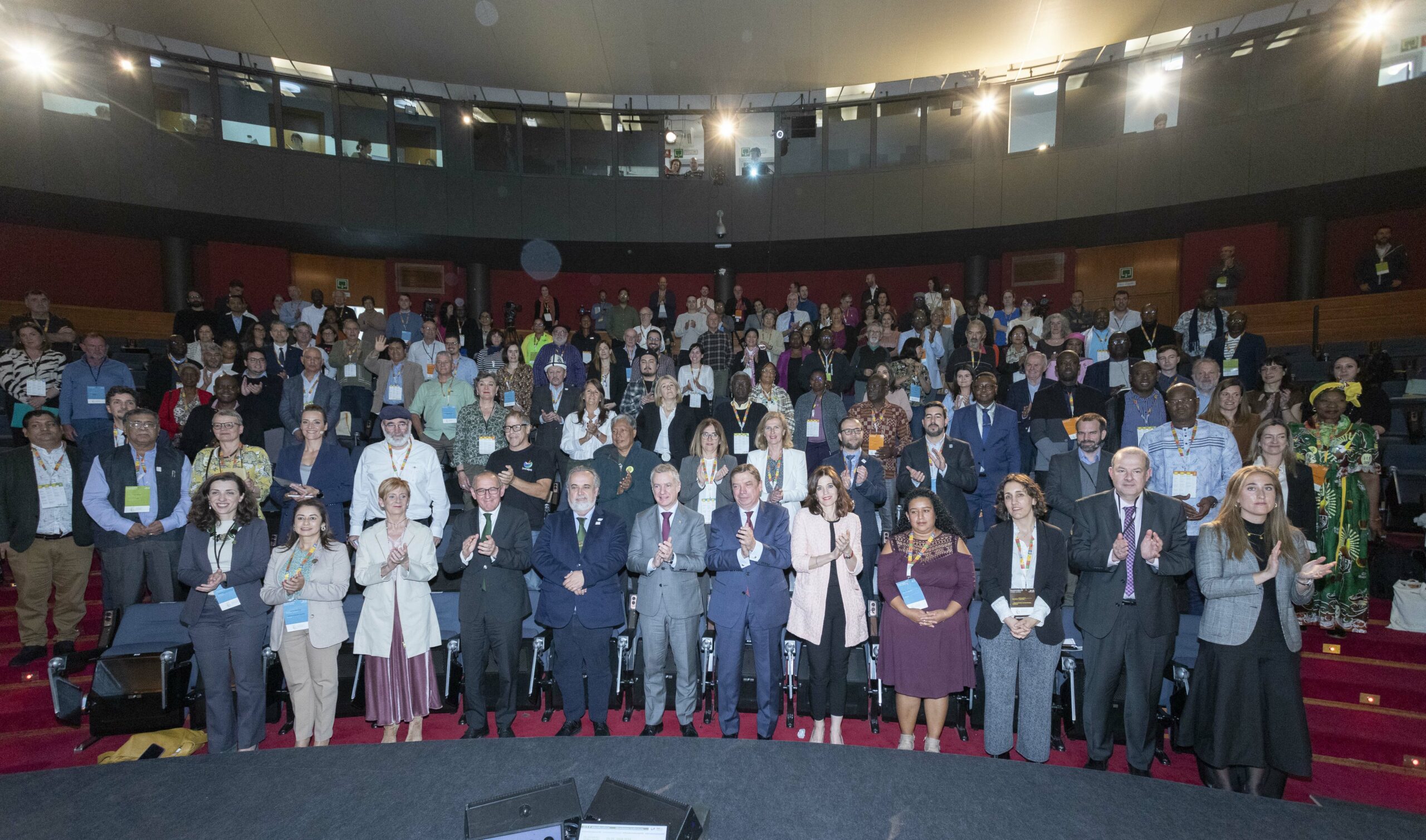The final declaration of the Conference “Sowing Sustainability: Scaling up the Vital Contribution of Family Farming“, calls for ” greater joint efforts to overcome daunting challenges faced by the sector”.
Vitoria-Gasteiz, March 21, 2024. The VIII Global Conference on Family Farming: ” Sustainability of our Planet” concludes today recognising the “vital” role and “catalytic contribution” of family farmers for a sustainable planet and for the economic development. It urges family farming organisations to participate as “key actors” in climate discussions and negotiations and in their financing mechanisms..
The VIII Conference has identified and agreed on key actions to promote implementing the United Nations Decade for Family Farming (UNDFF 2019-2028) and address the emerging challenges of family farmers in particular, as stated in the Final Declaration presented this Thursday by Evelyn Masin Brito, on behalf of the Family Farming Youth Core Group.
During these five years of the UNDFF 2019-2028 implementation, significant progress has been made, but Family Farming continues to “face enormous challenges” which “we will only overcome if we double our joint efforts, move forward in recognising the vital and leading role of family farming in addressing the climate crisis and in transforming food systems, while increasing support to deploy its full potential”.
The Conference has served to highlight the leadership of the rural youth in transforming food systems, generating employment and ensuring generational renewal within family farms. The young delegates call for support for recognising the International Day of Young Farmers “as a sign of committing to initiatives that encourage their participation and developing their innovative potential”.
Gender inequalities in rural areas are among the identified challenges, which “urgently need to be addressed” in order to advance rural women’s empowerment through organisational transformations and specific, inclusive and equitable public policies aimed at promoting their autonomy and rights. Notably, land tenure and access to economic and financial resources, with specific funds earmarked for this purpose.
The final declaration of the VIII World Conference states that “five years ago, the United Nations declared the Decade of Family Farming an important milestone. Today, aspirations of family farmers are clearly visible and our proposals are concrete. As crises shape up and challenges become more acute, family farming organisations emerge with greater strength to be the solution that the world needs. “We need catalytic actions that improve the lives of family farmers while ensuring a sustainable future for all.”
The VIII Global Conference on Family Farming, celebrated from March 19-21, organised by the World Rural Forum, convened more than 200 representatives of leading family farming organisations, regional platforms, governments, international bodies, research centres, consumer, philanthropic, women’s and youth organisations, as well as National Family Farming Committees from the five continents.
CLOSING ACT
The Lehendakari/President of the Basque Country, Iñigo Urkullu, participated in the closing ceremony of the VIII Global Conference on Family Farming and “congratulated the World Rural Forum for its 25-year trajectory. “You have immensly contributed and I am certain that it will continue to do so in the coming years because agriculture is in our roots”.
The Minister of Agriculture, Fisheries and Food, Luis Planas, emphasised the importance of family farming in Spain and expressed his commitment to implementing a Law on Family Farming that supports its strategic role in the social and economic development of the territories, its capacity to offer alternative employment to young people and women, and its positive impact on the environment. “Family farming is the basis of a sustainable, social, profitable and competitive agri-food sector”, he stressed.
Martín Uriarte, President of the World Rural Forum, affirmed that “there will be no sustainable future without family farming with a future” and added that family farmer organisations “are ready for negotiation”.
“Political dialogue must be strongly pursued, which is why I continue to defend the transcendence of promoting National Committees for Family Farming and other spaces for political dialogue, processes that have achieved significant progress,” he stressed.
Uriarte ensured that “this Conference is a real momentum for family farming” and acknowledged the work of young farmers, claiming that the focus placed on rural succession or access to agriculture should be a priority in all government agendas. Finally, he called for collaboration to reduce gender inequalities in rural areas and to advance towards empowering rural women.



